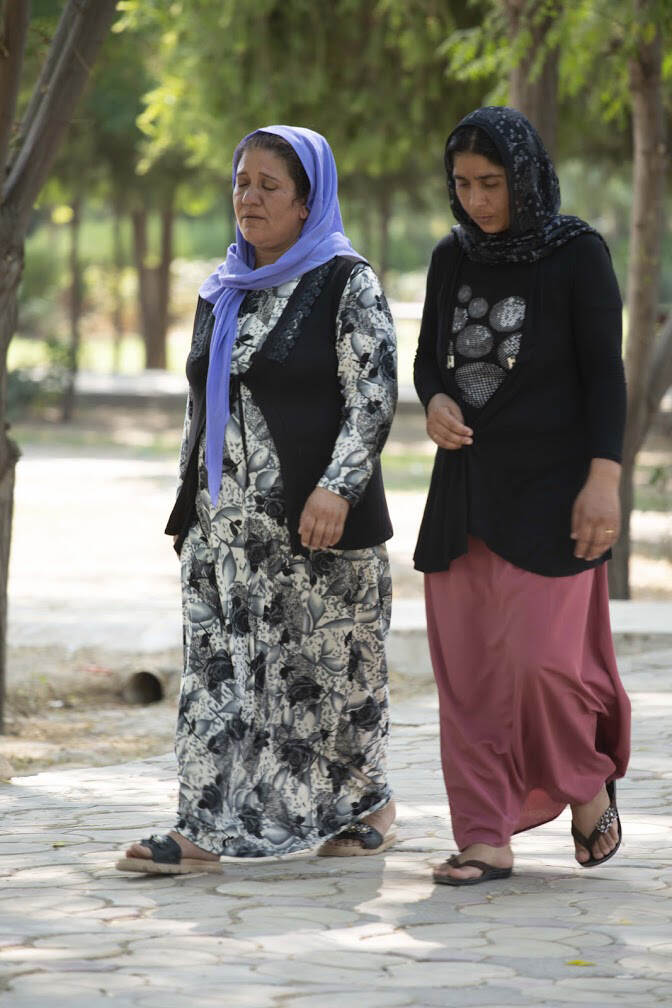Sinjar still relives horrors of ISIS massacre
Voices from the field
When ISIS seized the northern Iraqi city of Sinjar on 3 August 2014, among those Yezidi captured were Nofa Zuroo, 36, and Jamila Haji, 41. Their sufferings didn’t end when ISIS was eventually ousted. ‘I am crying in my mind most of the time because of what we went through.’

Suffering and cruelties
The 2 women and their families experienced unimaginable suffering and witnessed unspeakable cruelties. They are still struggling with the psychological and emotional consequences, such as permanent distress, insomnia, social avoidance and suicidality, apart from multiple physical complaints. Watch their story below.
Despair and insecurity
Sinjar General Hospital has a mental health and psychosocial support (MHPSS) program, led and implemented by Cordaid. It assists both these women, as well as other survivors, with therapy and medication. Still, they have an incredible hard time overcoming the past and dealing with their feelings of despair and insecurity. There is a shortage of everything, including specialists who can assist afflicted people in coping with their situation.
MHPSS in crisis situations
During and after conflicts and disasters such as Jamila and Nofa have survived, MHPSS is crucial. Humanitarian response organisations worldwide are doing all they can, but more is needed to achieve long-term solutions.
MHPSS must be part of the basic assistance provided in crisis situations, so that people are able to care for themselves and for others. The Minister for Foreign Trade and Development Cooperation, Sigrid Kaag, will be hosting an international conference on 7 and 8 October to help achieve this goal.
Psychosocial support is not a luxury, but a necessity.